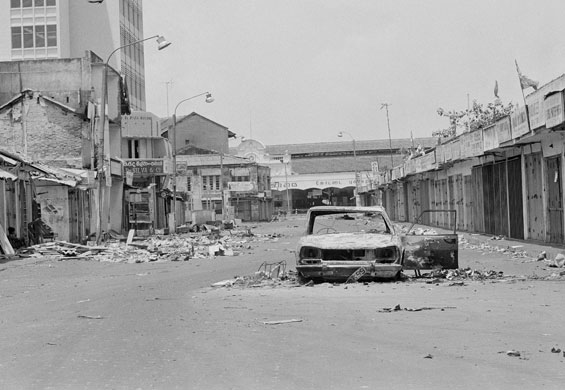As we mark the solemn 40th anniversary of Black July today (23), we are compelled to reflect on one of the darkest chapters in Sri Lanka’s history.
It all began when Tamil separatists, seeking autonomy in the northern regions of Sri Lanka, escalated their militant attacks. On one fateful day, 13 soldiers who had recently reported for duty were killed by the separatists.
In the aftermath of this brutal attack, Sinhalese mobs targeted Tamils across the country, resulting in a horrifying death toll. These attacks were marked by unspeakable cruelty, with innocent people being burned alive in their cars, and others subjected to heinous acts of violence. One of the most chilling incidents occurred in the country’s largest prison, where Sinhalese inmates targeted their Tamil counterparts, leading to the senseless killing of 53 Tamil prisoners.
The fallout from Black July went far beyond the immediate casualties, as it proved to be a pivotal moment that altered the course of Sri Lanka’s history. Black July served as a powerful recruiting tool for Tamil militant groups, forcing the nation into a full-blown civil war that would last for a staggering three decades.
In 2004, former President Chandrika Kumaratunga publicly apologised to Tamils for Black July. She appointed a commission which concluded that nearly 1,000 people died, and 700,000 were exiled. She acknowledged there might be many more unreported incidents.
This 40th Anniversary of Black July should be a collective call to action, with a commitment to never allow such atrocities. To truly move forward, we must embrace the principles of accountability, acceptance, and reconciliation. For that, we must acknowledge that past mistakes were made, and some acted with impunity. To heal the wounds of the past, we need a genuine commitment. By holding those responsible to account, we send a powerful message that such acts of violence will never be tolerated again. Additionally, we must ensure that reparations are made to those who suffered the most, giving them the opportunity to rebuild their lives and communities.
Further, acceptance is an essential step in the process of reconciliation. We must acknowledge the pain and suffering of the Tamil community during Black July.
Unfortunately, what we can see is whenever injustices faced by minorities are pointed out, many try to suppress it by bringing up the crimes committed by the LTTE against the military and majority Sinhalese and vice versa. This is what the leaders of Sinhala, Tamil, and Muslim communities have been doing for decades. This is not for the benefits of the common people who suffered but for securing the power of so-called leaders.
Now, the Government shows keen interest in introducing the same model of the Truth and Reconciliation Commission (TRC) in South Africa that was established in 1995, following the end of apartheid and the transition to democracy.
The South African TRC had a unique approach, combining elements of both judicial and restorative justice. It provided a forum for victims to share their stories and experiences of human rights abuses and for perpetrators to confess and seek amnesty for their crimes. The commission heard testimonies from victims of gross human rights violations, such as torture, killings, and forced disappearances.
However, if we truly want to establish reconciliation, we must accept the truth of our history, the pains and shames along with the glory.
Moving forward does not mean forgetting; it means learning from the past to build a better future. Our journey towards national reconciliation requires collective efforts from all sections of society. We need to promote dialogue, tolerance, and understanding among diverse communities.
This includes incorporating comprehensive history lessons in schools that acknowledge our nation’s diverse cultural heritage and the importance of coexistence. By teaching the younger generation about the mistakes of the past, we equip them to become champions of peace and harmony.
Let us embrace accountability and acceptance as essential components of a society that values human dignity and unity. By acknowledging the pain of the past and working together towards genuine reconciliation, we can build a nation that is resilient, inclusive, and truly prosperous for every ethnicity in the country. Otherwise, even if we establish hundreds of TRCs in Sri Lanka, they will be mere shows that waste people’s money.


